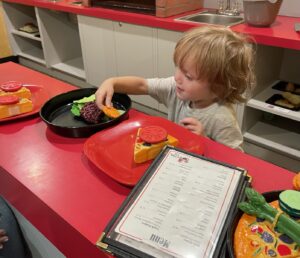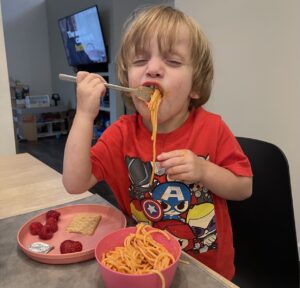Medical supply ordering can be stressful for an Alagille parent
My son's medication and formula deliveries don't always go smoothly
Written by |

There are many hurdles that come with rare genetic conditions. One obstacle my family has struggled with recently is that the supplies we need are also rare. My son Finley has Alagille syndrome, and when we run out of medicine or his specialized formula, it’s not as easy as running to the local store to gather what he needs.
Even though the need for medication and nutritional supplementation has lessened as Finley has aged, they’re still an important part of his daily needs. One positive that came out of the pandemic was that our local children’s hospital started mailing medication. I’ve heard of families that had to drive to the hospital every month to pick up their child’s prescriptions. We live fairly close to the hospital, but for some, the trip takes hours.
I feel fortunate that we can order Finley’s medication and have it arrive in our mailbox. But despite the convenience, this method also brings challenges.
Mail arrival can be unpredictable, and sometimes we don’t get the tracking information. On one occasion, the package was marked “delivered” online, but the medicine was nowhere to be found. Our insurance company covers one replacement a year, but that’s not very comforting after you’ve ordered that one replacement. Thankfully, that’s only happened once in Finley’s three years of life.
The stress of not having medication or formula is tough, but we’re also at the mercy of insurance. Our plan covers the Peptamen Junior formula that Finley takes, and I’m extremely thankful because it’s quite expensive. But if Finley goes through our supply quicker than normal, we just have to wait until the date when our insurance company can send more.
Just the other week, we encountered this very problem.
Running out of needed supplies
Finley has always been great about taking his formula. We’ve tried introducing whole cow milk on occasions, as he won’t be on this toddler formula forever. He was never willing to go there, though. He’d drink water or juice, but the only “milk” he’d drink was his formula.
Last week, we ran out of Peptamen Junior. My anxiety went up with this realization. Even though he’s a good eater by the standards of a 3-year-old, we’re hyperfocused on Finley’s nutrition.
I’d sent an email to our children’s hospital home-care team earlier in the week when I noticed we were running low, but I hadn’t heard anything back. Typically we receive a reply the same or next day. It turned out I was contacting them earlier than was allowed by insurance. I called on Friday after realizing we’d run out, and the team let me know that the formula was scheduled to ship on Monday, arriving Tuesday, as that was the earliest they could send it based on insurance billing.
This worry isn’t the same as the panic we experienced during the formula shortage when Finley was an infant. While we made it work, it was a grind to get enough for our needs at the time. Today, we know he’s getting most of his nutrition from food. That said, putting our medical anxiety to bed is easier said than done.
Finley likes to request his formula first thing in the morning and then usually again before bed. On the first morning without it, I snuck in whole milk instead. He drank it, no questions asked, for the first time. And he downed the whole thing! It was a giant win that alleviated some of the pressure I place on myself regarding his nutrition.
This achievement revealed two truths: Finley is ready to try more new things, and I can relax if we’re without Peptamen Junior for a few days. It won’t undo his growth.
In many aspects of caregiving, I’m learning to release myself from the crushing weight of expectations. I’m taking every step I can to help Finley thrive.
Note: Liver Disease News is strictly a news and information website about the disease. It does not provide medical advice, diagnosis, or treatment. This content is not intended to be a substitute for professional medical advice, diagnosis, or treatment. Always seek the advice of your physician or other qualified health provider with any questions you may have regarding a medical condition. Never disregard professional medical advice or delay in seeking it because of something you have read on this website. The opinions expressed in this column are not those of Liver Disease News or its parent company, Bionews, and are intended to spark discussion about issues pertaining to liver disease.






Leave a comment
Fill in the required fields to post. Your email address will not be published.